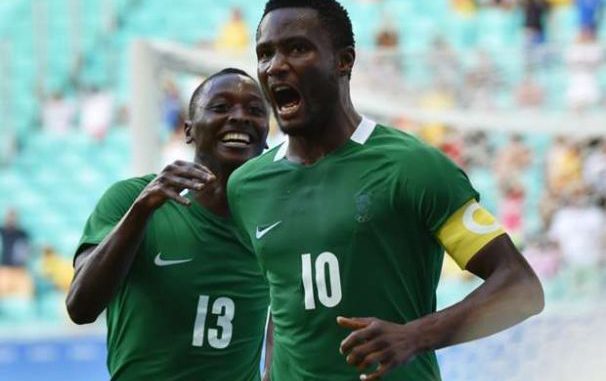
On the political point, the Super Eagles have showed there is still a lot to cheer about Nigeria, if merit and focus are the drivers.
On October 7, they became the first African country to qualify for the FIFA World Cup, which holds in Russia, in June 2018 — and that to the delight and pride of all. In the euphoria, everyone forgot any trouble or dissonance. Nothing mattered but the overwhelming bliss and pride of the moment.
On the sporting front, the feat is even more spectacular, as long as records go. For the first time, in all six World Cup qualifications, since Nigeria’s debut in 1994, the team qualified well ahead of the final-day set of matches. Indeed, had the team been more clinical, and beaten Cameroon in Yaoundé on September 4, they would have wrapped up qualification, with two matches to spare!
This is a great feat. Despite the 1-1 draw away to Cameroon, after thumping that country in Uyo three days earlier, they breezed through qualification with four wins and one draw, the only country from the quad of Cameroon, Algeria, Zambia and Nigeria — all African footballing giants by current standings — to log that record. If they win or draw away to Algeria on November 6, they would have ended the qualification series unbeaten.
Between the 1994 squad that secured Nigeria’s first-ever qualification and this sixth feat, there is a glorious parallel — and Algeria, the Eagles final opponents, are the constant factor.
Against Algeria, at home in Lagos on July 3, 1993, in the final qualification series, a certain 18-year old, Austin “Jay-Jay” Okocha, then of German Bundesliga club, Eintracht Frankfurt, burst on the Nigerian consciousness by firing in a 12-minute free-kick, to cancel out Algeria’s 5th minute lead. Nigeria would go ahead to win that match 4-1, to nick qualification among the triad of Nigeria, Côte d’Ivoire and Algeria.
This year, though against Zambia, another “Okocha variant”, the humongously skilful Alex Iwobi, of English Premiership side, Arsenal, would burst on Nigerian sporting consciousness, with a roar of applause. He not only scored the first of the two goals away, in the 2-1 defeat of Zambia that put qualification on course, he also scored the lone goal in Uyo, coming off the bench, that made Russia sure. But just as Algeria was at the bottom of the pack in the three-cornered final qualification league series in 1994, they are also at the bottom of the log this year.
But all these would become mere statistics, if the Eagles and their handlers do not do the needful, to well and truly excel in Russia. Already, the 1994 team has been touted as the best-ever Nigeria ever assembled. This present set have placed themselves on a good pedestal to better the set of Stephen Keshi, Finidi George, Rashidi Yekini, Peter Rufai, and Daniel Amokachi, to mention just a few of those all-time greats.
But the only way they can do that is to aim at a higher platform. Already, they have qualified with a match to spare, a feat the 1994 squad could not achieve. Now is the time to set their sights on a higher plane: go right ahead to better the second round feat of 1994, better the quarter-final African records of Senegal and Ghana — and who knows? Set a new African record, that teems with hope and promise.
Nevertheless, this would not be attained by sheer dreams or rhapsodizing. Rather, it would be achieved by hard work and punishing focus. That would not come easy. The best practical way to do this is to, starting from the final day qualification match with Algeria, turn every match into a serious build-up. Qualification is sweet. But it’s now history. Now is the time to show hunger for rare glory, at the World Cup proper.
Still, thus far, it’s a cascade of kudos to the Nigerian football aristocracy that made this sweet qualification possible: the Nigerian Football Federation (NFF) that, for once, got its bearing right; its chairman, Amaju Pinnick, who continues to show a zero-tolerance for the mediocrity and scandals that hitherto was the lot of that body; the extremely focused Gernot Rohr, the Franco-German who, instead of roaring about his success, has stayed focused with stunning taciturnity, and the federal authorities that have gifted the team all the motivations it needs.
The Nigerian football administration must stay focused; and must not ease their foot from the pedal until the team plays more high-grade friendlies and gets blended even better. As the Zambians showed in Uyo, the Eagles can attain better team cohesion; and get more clinical in front of goal. If the right steps are taken, this team could morph into a gang, ready to meet any opposition at the Mundial. As a sports commentator often loves to say, gangs — not teams — win the World Cup.
This is the direction to go for the ultimate glory.
END

Be the first to comment